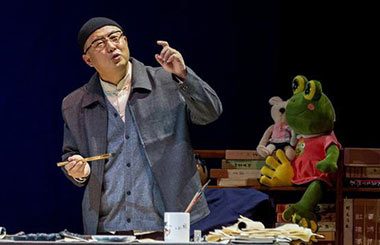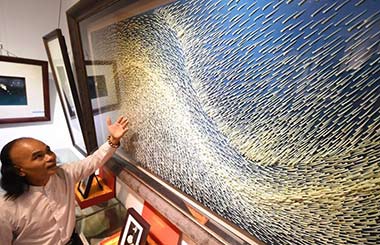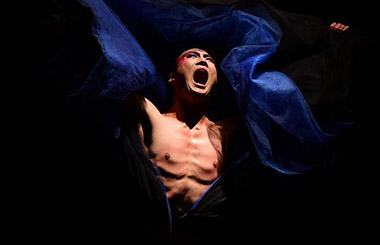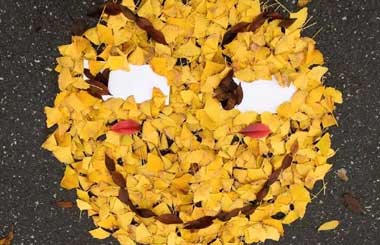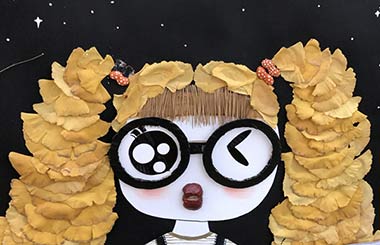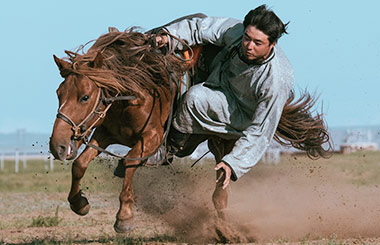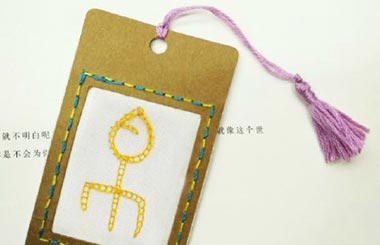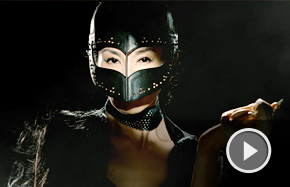Village of ringmasters
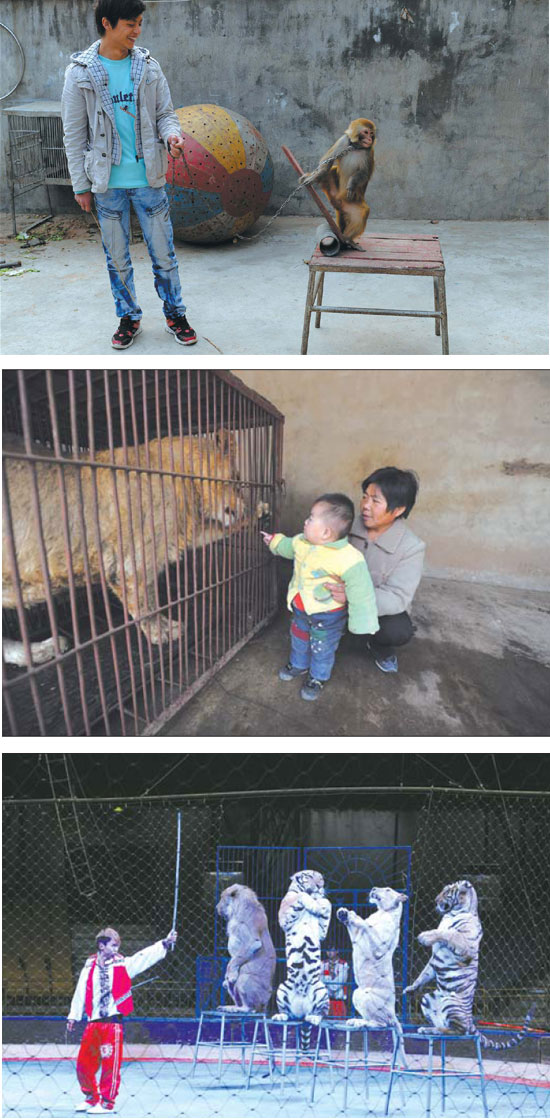 |
|
From top: A young villager trains a monkey at Haogou village in Suzhou, Anhui province. A grandmother and her grandson watch the lion caged in their family's backyard at the village. A Haogou circus stages animal performance. Photos by Wu Fang / For China Daily |
It is an unusual hamlet, where almost every house has a couple of tigers and lions in the backyard. Zhang Yue explores a village in Suzhou, Anhui province, where you don't have to run away from home to join the circus.
Last year's big screen blockbuster Life of Pi was all about a shipwrecked boy and how he floated on the sea stranded with a huge tiger.
In certain villages in Suzhou, Anhui province, living with tigers and lions is part of daily life.
Xu Changzhou, 41, of Haogou village in Yongqiao district in Suzhou, starts his day by feeding his four tigers, three lions, two monkeys and a sheep. Xu has done this for the last 15 years.
His backyard is no different from the average Chinese villager's, with piles of stuff covered under tarpaulin. But if you go nearer, you may hear the muted roars coming from under the waterproofed wraps. Unveil them and you'll see several lions and tigers staring out from their large cages.
"Watch out. Don't go too near," Xu warns strangers. The tigers, it seems, are wont to lift their legs and spray at unfamiliar visitors wandering too near their territory.
Like many households in his village, Xu's backyard houses a mini-zoo, and the 30-square-meter space is home to the animals when they are not touring the country, performing at southern provinces such as Yunnan, Guangdong and Hunan.
Ten days before the Lunar New Year, the village is quieter than usual, as most of the ringmasters have led their troupes away on tour during the Spring Festival.
It is a time-tested tradition for Haogou village, where the villagers have made a living out of training and performing with animals since the Ming (1368-1644) and Qing (1644-1911) dynasties.
It started with vagabonds wandering through the village with a monkey performing tricks and begging for money. Later, the repertoire expanded to include other animals and acrobatic stunts.
In 2006, the Chinese Acrobats Association gave formal recognition to Yongqiao district as the "home for Chinese circuses". But while this reputation grows, it also heralds complications.
Xu's family now lives in downtown Suzhou, and he earns a comfortable income of about 1 million yuan ($160,000) a year, but he says it is getting harder, and things are no longer as simple as it used to be.
Much of it comes from the public's growing awareness of animal rights and its perception of cruelty to animals.






